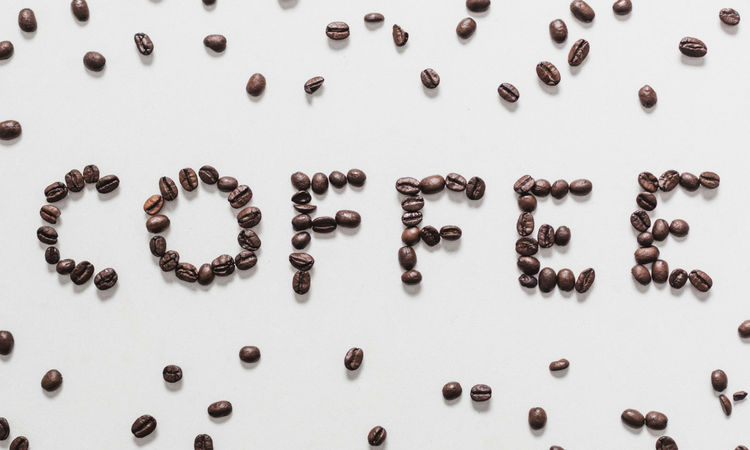Coffee is a very healthy drink to have as part of your diet. As long as it is consumed in moderation, you can reap the benefits that this beverage has to offer. But the key word is moderation.
What’s Actually In Coffee?
Firstly, let’s find out what’s actually in coffee that’s causing the effects. The simple answer to this question is a lot of good things!
Caffeine
The main active ingredient in coffee, and the one you’re probably most familiar with is caffeine. It stimulates the nervous system, increases adrenaline and dopamine levels, and blocks out that sleepy chemical adenosine.
An average cup of coffee has anywhere between 75 and 100 milligrams of caffeine. The European Food Safety Authority (EFSA) and the US Department of Agriculture (USDA) both agree that 400 milligrams of caffeine a day is safe for non-pregnant adults, but should not be consumed in more than 200 milligrams doses.
Antioxidants
Antioxidants are compounds that stop oxidation. Oxidation is a chemical reaction that can sometimes produce things called ‘free radicals’. Free radicals are waste products produced by cells, and if they cannot be processed and removed from the body, this can put oxidative stress on your body.
Oxidative stress has been linked to cancer, stroke, heart disease, arthritis, immune deficiency and Parkinson’s disease to name a few. Antioxidants have been found to help neutralise these free radicals, and therefore boosting our health and lowering our risk of chronic illnesses.
Diterpenes
The diterpenes, cafestol and kahweol are both present in the oils that are naturally found in coffee. There are higher amounts in unfiltered coffee than filtered.
There’s evidence to suggest that they can have protective properties against cancer, and are beneficial for the liver. More studies need to be conducted to draw conclusive evidence however, but we do know high amounts can increase LDL cholesterol.
The Effects on The Brain
There are many different ways caffeine affects the central nervous system, but a lot of the effects you feel after drinking a cup of coffee have got to do with the blocking of adenosine.
Adenosine is a chemical that starts to build up very slowly in your brain from the moment you’re awake. The more adenosine you have in your system, the sleepier you feel. Once you’re asleep, the adenosine gets flushed out, and you wake up the next morning fresh.
Caffeine binds to the receptors in your brain that adenosine attaches too. When this happens, it prevents adenosine from slowing down your neural activity and therefore blocks that sleepy feeling.
Boosting Your Brain Function
It’s not just adenosine that caffeine has an effect on. It causes changes in several different neurotransmitters like noradrenaline, dopamine and serotonin.
Together they help improve our mood, vigilance, attention, learning and general mental function.
After a long period of time, we tend to build up a tolerance to the effects of caffeine, and so we don’t feel them as strong as we used to. This would mean you’d drink more to feel the desired effect, but our tolerance would also increase in time.
We need moderation and sometimes a break from caffeine to keep feeling these effects, without running the risk of over indulging too much in our favorite beverage.
Coffee and The Mind
There have been countless studies on the effect of coffee on the brain and mind. It’s mostly got to do with caffeine, however the other compounds found in coffee also have beneficial properties.
 Sleep
Sleep
Caffeine can be a miracle drug at the start of the day for a lot of people, giving us that little boost to get the day rolling. But there can also be some negative effects on your sleep if you take caffeine later in the day, especially for people who are sensitive to caffeine.
It is true that if you’re a regular caffeine drinker, then you might be able to get away with having a coffee later in the day. The effects seem to be less pronounced for caffeine veterans.
Even with that being said if you’re having trouble sleeping, and you drink caffeine daily, research has shown that having a break from caffeine even for one day can improve sleep quality. You can also try avoiding caffeinated drinks after 2pm, as this gives your body enough time to rid it of caffeine before you try to sleep.
Mental Performance
It’s been found that caffeine can improve wakefulness when you’ve got a reduced sense of alertness due to lack of sleep. If you’re working at night, nighttime driving or starting to feel tired at work after lunch, then caffeine can help to boost your attention and concentration.
The EFSA found that after consuming a cup of coffee, or 75 milligrams of caffeine, your alertness and attention increases.
Makes Us Feel Good
I don’t know about you, but I often look forward to my morning coffee as I’m falling asleep, but why does that happen?
What is it about coffee that makes us feel so good?
When caffeine blocks the adenosine from having any effect, your body has no other choice but to release dopamine and glutamate. These are two chemicals that are responsible for feeling good.
Dopamine is also the chemical that is released when we eat a sugary treat like chocolate, when we drink alcohol, or eat a meal we’ve just spent ages cooking. It’s like your body gives you a little ‘hit’ of feeling good.
So once you’ve had that first cup of coffee, you get that hit and we feel happy.
The Benefits
Drinking coffee for a long period of time can have a lot of beneficial effects on our body too.
Improves Heart Function
It’s been common knowledge in the past that caffeine is responsible for causing problems for people with heart complications.
Recent studies found caffeine to actually have the opposite effect on our hearts. One result they found was that people who had a heart attack and drank coffee on the regular, around 3 cups a day, had an improved heart rate and fewer irregular heartbeat issues than those that didn’t.
Improves Our Memory
Drinking a cup of coffee has been shown to help us with memorizing information. Don’t be thinking that after a couple of cups of coffee you’re going to turn into Einstein, but with straightforward information like lists and small facts you’ll see an improvement.
Caffeine has been shown to have different effects on different people though. For instance if you’re a big caffeine drinker, the effects might be smaller than someone who drinks coffee once a week or less.
Improves Athletic Performance
If you’re wanting to beat your fastest 5K time, then your chances are likely to be better if you have a cup of coffee beforehand.
Caffeine is one of the most common performance enhancing drugs used for sports.
If you don’t drink too much of it in day-to-day life, and you dose the caffeine correctly, it can give you noticeable performance gains.
Final Thoughts
Coffee has a huge range of ingredients that can be considered beneficial to our health. Our physical health and our mental health.
As long as you consume in moderation and don’t drink coffee too late in the day, you’re going to feel all the benefits while minimizing any potential side effects.
With that in mind, I think it’s time for a brew!







Leave a Reply